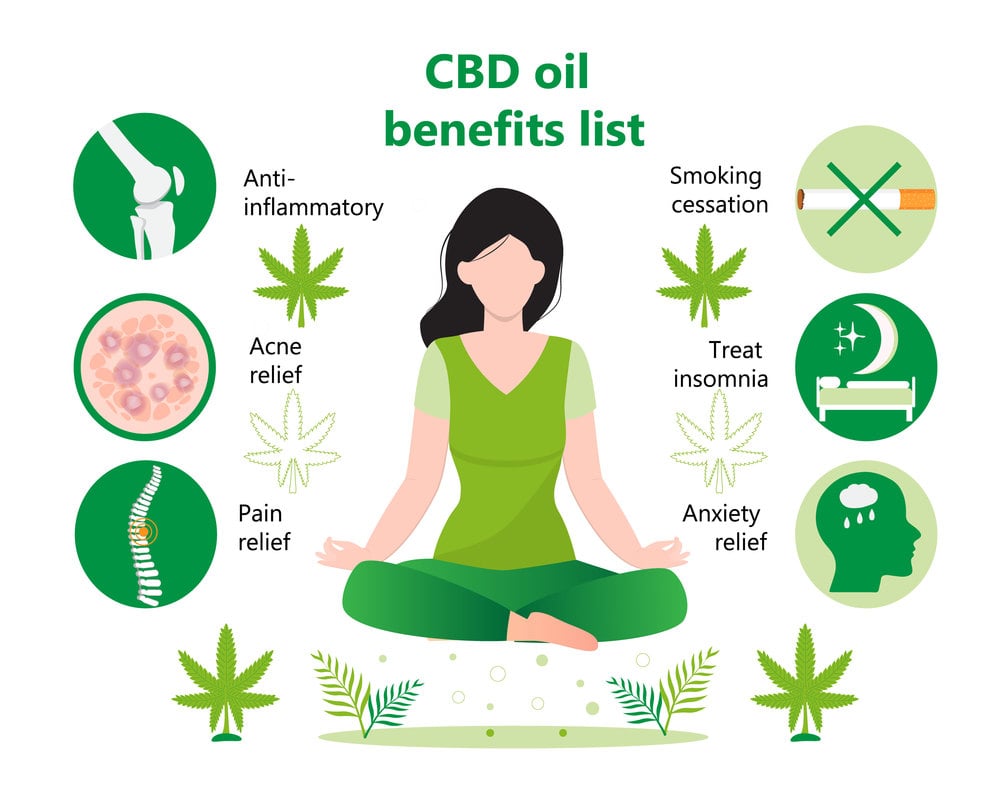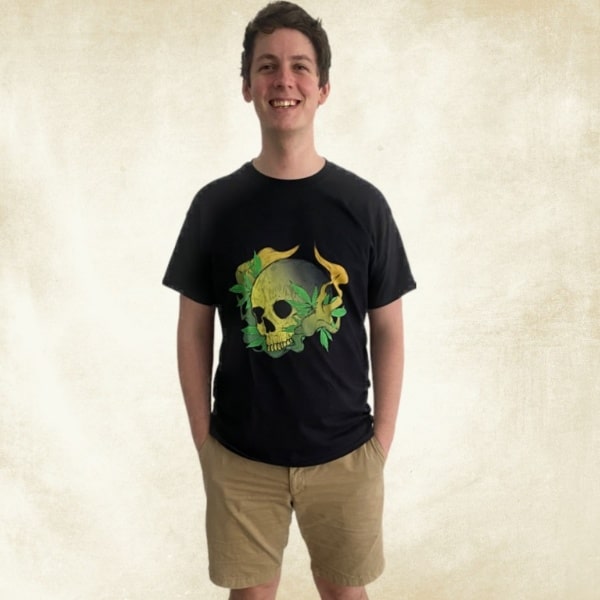
Can CBD Oil Treat Epilepsy and Prevent Seizures?
- Does CBD Oil Help Treat Epilepsy
- What Types Of Seizures Does CBD Oil Treat?
- What Epilepsy Symptoms Does CBD Oil Treat?
- How Effective is CBD Oil for Seizures?
- Which CBD Oil Best Treats Epilepsy?
- The Side Effects of CBD and Epilepsy
- Conclusion
Medical cannabis is most famous for its ability to treat epilepsy and prevent seizures in adults and children.
CBD has shown positive result an anticonvulsant in treating patients with epilepsy. Doctors in Australia prescribe CBD oil to rest epilepsy symptoms including seizures, spasms, etc. CBD does not trigger seizures as it is not a receptor activator.
Epilepsy Action Australia focuses on providing up-to-date information on cannabis as a treatment for epilepsy.
Table of Contents.
Does CBD Oil Help Treat Epilepsy
Over 30 percent of patients with epilepsy still have seizures even when using antiepileptic drugs.
Studies for alternatives and more effective antiepileptic solutions, such as CBD and THC cannabis oils, have been conducted since the 1970s.
In the 1990s and 2000s, more detailed research was performed on the use of THC and CBD when treating epilepsy; however, the preference is for CBD to be used as the primary treatment due to its non-psychotic nature.
CBD alone is an effective non-psychotic and non-intoxicating medicine that can be used to treat various forms of epilepsy.
The results of decades of research, clinical studies and patient case studies, show that cannabidiol (CBD) can reduce the severity and frequency of seizures in adults and children.
There has even been a great success in studies around children with Dravet Syndrome. Dravet Syndrome is resistant to most antiepileptic medication and also has a high death rate for children.
What Types Of Seizures Does CBD Oil Treat?
CBD oil has been proven to treat epilepsy effectively, but how does it affect each type of seizure?
If you have a medical condition or epilepsy, we recommend discussing this with your doctor about having CBD as a possible treatment.
Absence Seizures
An absence seizure is when there is epileptic activity across our whole brain.
Compared to other types of seizures, the absence of seizure causes people to become absent. They are unconscious and generally have no convulsions.
These tend to end abruptly, with the patient having no memory or recollection of the event.
For patients with Absence Seizures that have all types of drugs prescribed by their neurologists, CBD oil may be an effective solution to treat seizures.
Patients may take five or ten drops of CBD oil under their tongue three times a day.
CBD has sedative-like effects that have been shown to reduce absence of seizures in adults and children.
We recommend discussing your absence seizures with your doctor to find out if CBD oil is a safe and effective choice.
Tonic-Clonic (Convulsive) Seizures
Tonic-clonic seizures, otherwise known as “grand mal” or convulsive seizures, have electric discharges across the whole brain.
A tonic-clonic seizure generally lasts between one and three minutes, the person will lose consciousness, and the muscles will stiffen.
This is visibly noticeable as this will cause the person to fall to the ground.
Clinical studies have shown that 10mg doses of CBD significantly decreases the frequency and severity of tonic-clonic seizures.
Studies on mice with tonic-clonic seizures show that cannabidiol (CBD) prevents tonic convulsions.
In a clinical study on the use of CBD in treating convulsive (tonic-clonic, tonic, clonic, and atonic) seizures, cannabidiol (CBD) medicine was found to be more effective than placebos.
Atonic Seizures (Drop Attacks)
Atonic seizures are among the scarier types of seizures due to their sudden and unexpected occurrence.
Children who suffer from atonic seizures can drop suddenly, fall to the floor and stay unconscious during the episode. This may only last a few seconds.
Highly purified CBD is effective in treating atonic seizures.
There have been positive results from clinical studies on the use of cannabidiol (CBD) and its treatment of Dravet Syndrome and atonic seizures in children.
With these clinical studies, the monthly frequency of atonic seizures were reduced by 51% and the overall amount of seizures were reduced by 48%.
Clonic Seizures
Clonic seizures typically begin in the patient’s early childhood and continues in their adult life.
The effects of the clonic seizures include loss of bodily functions, jerking, and uncontrolled body movement, and temporary loss of consciousness.
Studies have been shown to reduce the frequency and severity of clonic seizures in children and adults.
Myoclonic Seizures
The Myoclonic type of seizures appears in various kinds of epilepsy found in children.
The effects of Myoclonic is abrupt and sudden muscle spasms and jerks. This can happen to one part of the entire body.
CBD has shown to reduce the effects of Myoclonic seizures in children.
The overall Myoclonic seizures were reduced by half at 12 and persisted past 48 weeks.
More research is required to produce consistent evidence on the effective treatment of CBD on Myoclonic seizures.
What Epilepsy Symptoms Does CBD Oil Treat?

After just a few weeks of treatment, cannabidiol (CBD) as shown to dramatically reduce the overall effects of epilepsy.
The most symptoms of epilepsy that CBD treats include:
- confusion
- staring spells
- uncontrollable muscle movements/jerks/spasms
- loss of consciousness
- anxiety, anxiousness, fear, etc.
CBD has been able to reduce seizures from occurring in both adults and children.
Staring spells and confusion is less prominent in epilepsy patients taking CBD after 12 to 48 weeks.
The main medically and scientifically proven symptoms that CBD helps treat is with seizures, their uncontrolled muscle jerks and spasms, and the loss of consciousness.
How Effective is CBD Oil for Seizures?
Cannabidiol (CBD) has been proven to treat children and adults with various kinds of epilepsy effectively. CBD oil works as a preventative of seizures, and as an alternative to antiepileptic drugs that are no longer effective at treating seizures.
Tolerance of CBD in patients with epilepsy typically goes up over time. In Australia and New Zealand, doctors will have regular checkups to review the patient’s CBD dosage.
Which CBD Oil Best Treats Epilepsy?
Every patient is different, and doctors are the best people to decide which CBD oil is the best at treating epilepsy.
1. Charlotte’s Web
The best and most popular type of CBD oil for treating epilepsy is Charlotte’s web. This strain of cannabis is the best treatment of epilepsy in adults and children due to its low THC count and high CBD.
Charlotte’s Web CBD oil is presented as the world’s most studied and well-presented cannabis medicine to treat epilepsy and a wide variety of seizures.
Many other Australian manufactured CBD products are effective at treating epilepsy.
2. Cannabis Doctors Australia CBD Oil
Cannabis doctors Australia (CDA) distributes high-quality medicinal cannabis oil to Australian patients.
CDA is both a chain of cannabis clinics and a reseller of medical-grade cannabis products in Australia.
The CDA CBD oil is non-pscho-active and an effective antiepileptic.
The CDA CBD products include:
- CDA CBD 33-Capsule (33mg CBD Capsules) of $149
- CDA CBD 990-Crystal (1000mg CBD Crystal) of $149
- CDA CBD 30-oil (30mg/ml) of $69
- CDA Lozacan (50mg CBD sublingual Lozenge) of $215
CDA also has an affordable process for epilepsy patients looking for CBD oil as a medical treatment that includes the following:
- Initial consult cost of $99
- TGA application fee of $0 (included)
- Prescription consultant of $50
- Checkups for adjusted CBD dosage of $59
CDA is a preferred option as doctors who treat patients with epilepsy everyday are directly involved in choosing effective CBD oil products that reduce seizures.
3. Little Green Pharma CBD Oil
Little Green Pharma (LGP) is a local Western Australian medicinal cannabis manufacturer.
LGP produces high-quality CBD oil that is effective at treating epilepsy.
The LGP products do include THC, so a discussion with your doctor around THC and how it will treat your epilepsy and reduce seizures is essential.
Some of the LGP CBD oil products include:
- LGP Classic 10:10 oil (10mg/ml of THC and 10mg/ml of CBD)
- LGP Classic 20:5 oil (20mg/ml THC and 5mg/ml of CBD)
- LGP Classic 1:20 oil (1mg/ml THC and 20mg/ml of CBD)
The Side Effects of CBD and Epilepsy
The most common question epilepsy patients in Australia and New Zealand have around medicinal cannabis is, “can CBD oil make seizures worse?”
Cannabidiol (CBD) is relatively new in Australia, and there are ongoing clinical studies into the effectiveness of CBD oil.
Evidence shows that CBD oil does not make seizures worse, but there are full-spectrum cannabis medicines that include trace amounts of THC. In some cases, THC can make seizures worse, so doctors generally recommend pure CBD isolate or broad-spectrum CBD oil to treat epilepsy safely.
The side-effects of CBD may include:
- anxiety
- drowsiness
- fatigue
- change in appetite
- diarrhea
- dry mouth
Most patients report little to no unfavorable side-effects, but we recommend discussing CBD with your doctor to understand any conflicting medication.
Conclusion
The most popular medicinal cannabis product that treats epilepsy is CBD oil.
Medical studies have proven that CBD oil has been more effective than placebos.
CBD has been found to treat all types of seizures in adults and children, but studies and research are still ongoing.
CBD has also been shown not to make seizures worse and also to have minimal side effects.
The best type of CBD that treats epilepsy and seizures is CBD isolate, but situations vary, and THC can also be used to prevent seizures.
The most popular CBD oil for treating epilepsy and preventing seizures is Charlotte’s Web from America; however, there are many other cannabis manufacturers in Australia.
Cannabis Place doesn’t give medical advice. We provide factual information based on medical studies and other sources.
We always recommend consulting with a doctor to find the best CBD oil that can treat your epilepsy effectively.

James King
James is an experienced writer and legal cannabis advocate in Australia. He answers all the questions about business, legalisation and medicinal cannabis.
Disclaimer: Cannabis Place are not doctors and we recommend consulting health professionals for accurate information. This site may contain information regarding drugs. This medicinal cannabis content is designed for an 18+ audience. Click here for our full disclaimer




